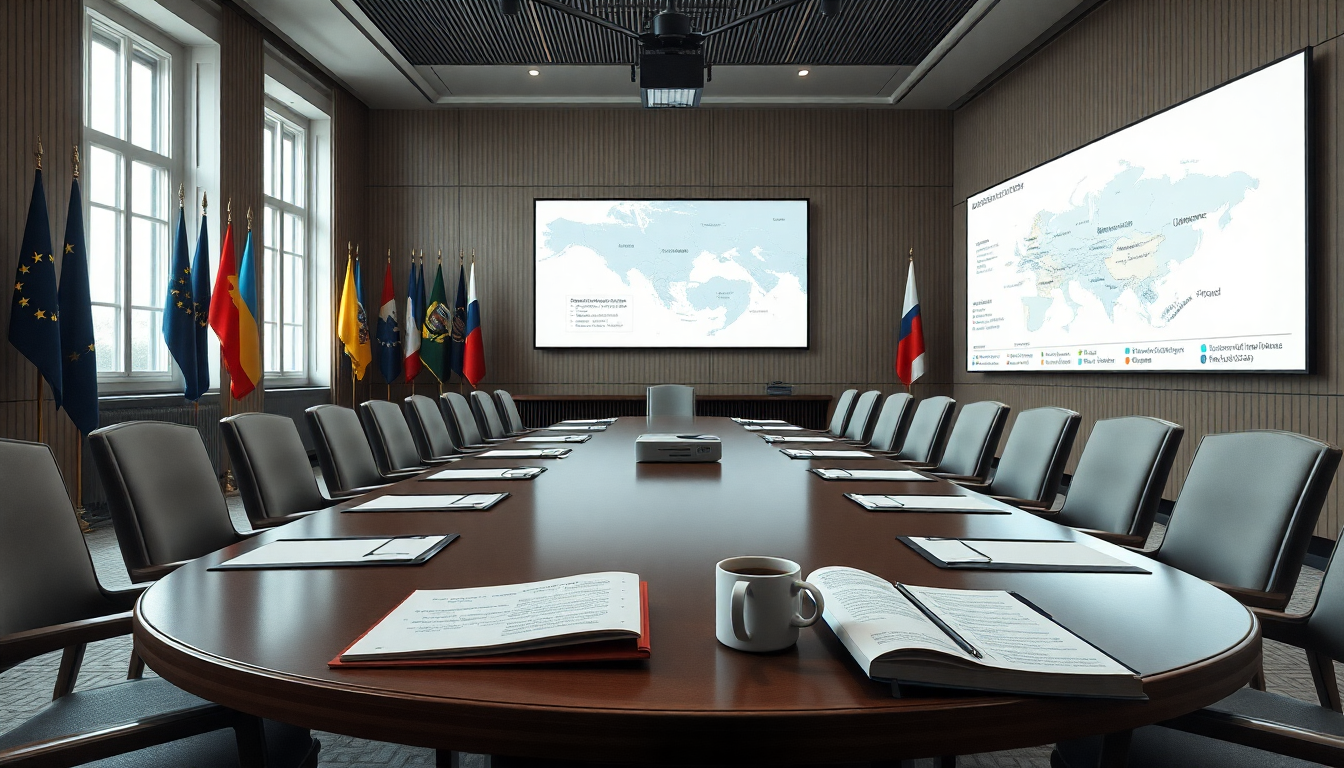Table of Contents
The ongoing conflict in Ukraine has created a tangled web of negotiations involving major global players. Recently, we’ve seen a coalition of European leaders coming together to show their support for Ukraine, especially as President Volodymyr Zelenskyy gears up for crucial talks in Washington.
But what’s really at stake here? Well, the backdrop of these negotiations features some hefty demands from Russian President Vladimir Putin, including territorial concessions that could significantly alter the balance in the region. To truly understand the potential outcomes of these discussions, it’s essential to grasp these dynamics.
The Coalition of the Willing
In a show of solidarity, European leaders—like French President Emmanuel Macron, British Prime Minister Keir Starmer, and German Chancellor Friedrich Merz—have formed what they call a “coalition of the willing.” This group aims to reject any territorial concessions made under pressure and push for binding security guarantees for Ukraine.
With Putin’s recent demands fresh in mind, the urgency of this initiative couldn’t be clearer, especially following his summit with former President Donald Trump in Alaska.
Putin’s terms reportedly include substantial territorial gains for Russia, which has sent alarm bells ringing among European nations concerned about regional security.
Adding to the complexity, there’s talk of involving China as a potential guarantor for any agreements, which could undermine NATO’s influence in the region. As European leaders strategize virtually in preparation for Zelenskyy’s visit, the stakes have never been higher for Ukraine’s future and the integrity of its borders.
Zelenskyy’s Strategic Position
For President Zelenskyy, the upcoming discussions in Washington are nothing short of pivotal. With Trump suggesting a three-way summit that includes Putin, Zelenskyy finds himself navigating a tricky diplomatic landscape. The backing from European allies is meant to strengthen Zelenskyy’s negotiating position as he tackles these complex issues on an international stage.
Meanwhile, the Ukrainian Embassy in Washington is set to play a vital role, facilitating communication and support for Zelenskyy. European leaders are optimistic that their coalition can amplify Ukraine’s voice in these negotiations, allowing for a stronger response to Russian demands. But can this coalition truly hold its ground against such a formidable opponent like Putin? The effectiveness of this alliance is yet to be determined as Zelenskyy prepares for these crucial talks.
The Future of Ukraine’s Peace Negotiations
The unfolding events surrounding the conflict in Ukraine reflect a larger struggle for influence in the region. The upcoming meetings—including Zelenskyy’s discussions in Washington and the proposed summit with Trump and Putin—will be vital in shaping the future of peace negotiations.
As European leaders affirm their commitment to Ukraine, a pressing question arises: can this coalition effectively counter Russia’s assertive moves? The historical context of the term “coalition of the willing”—once linked to military interventions—now takes on a new significance as it aims to prevent territorial changes through force. Ultimately, the outcomes of these negotiations will not only define Ukraine’s future but also the stability of Europe and the larger geopolitical landscape.





